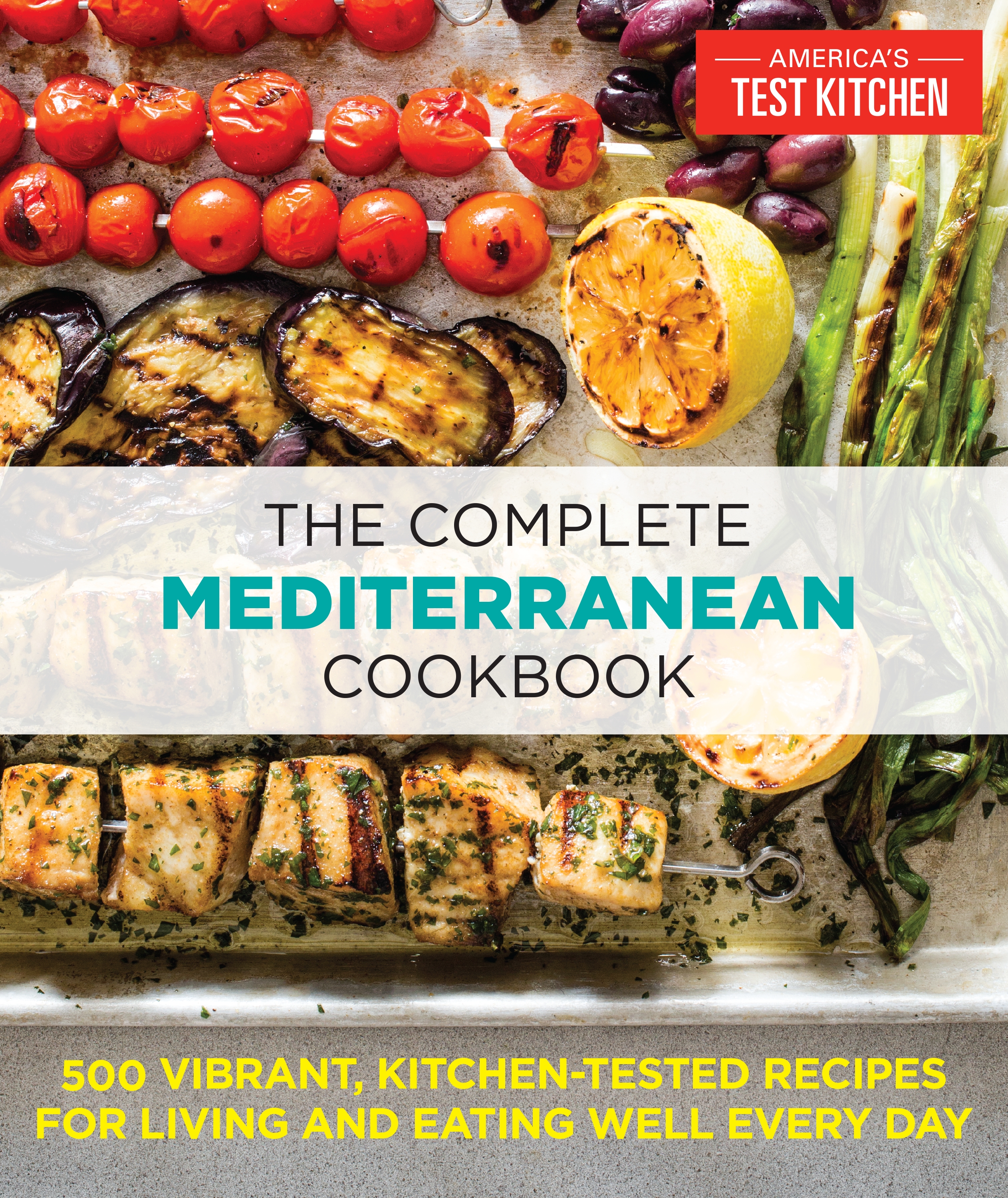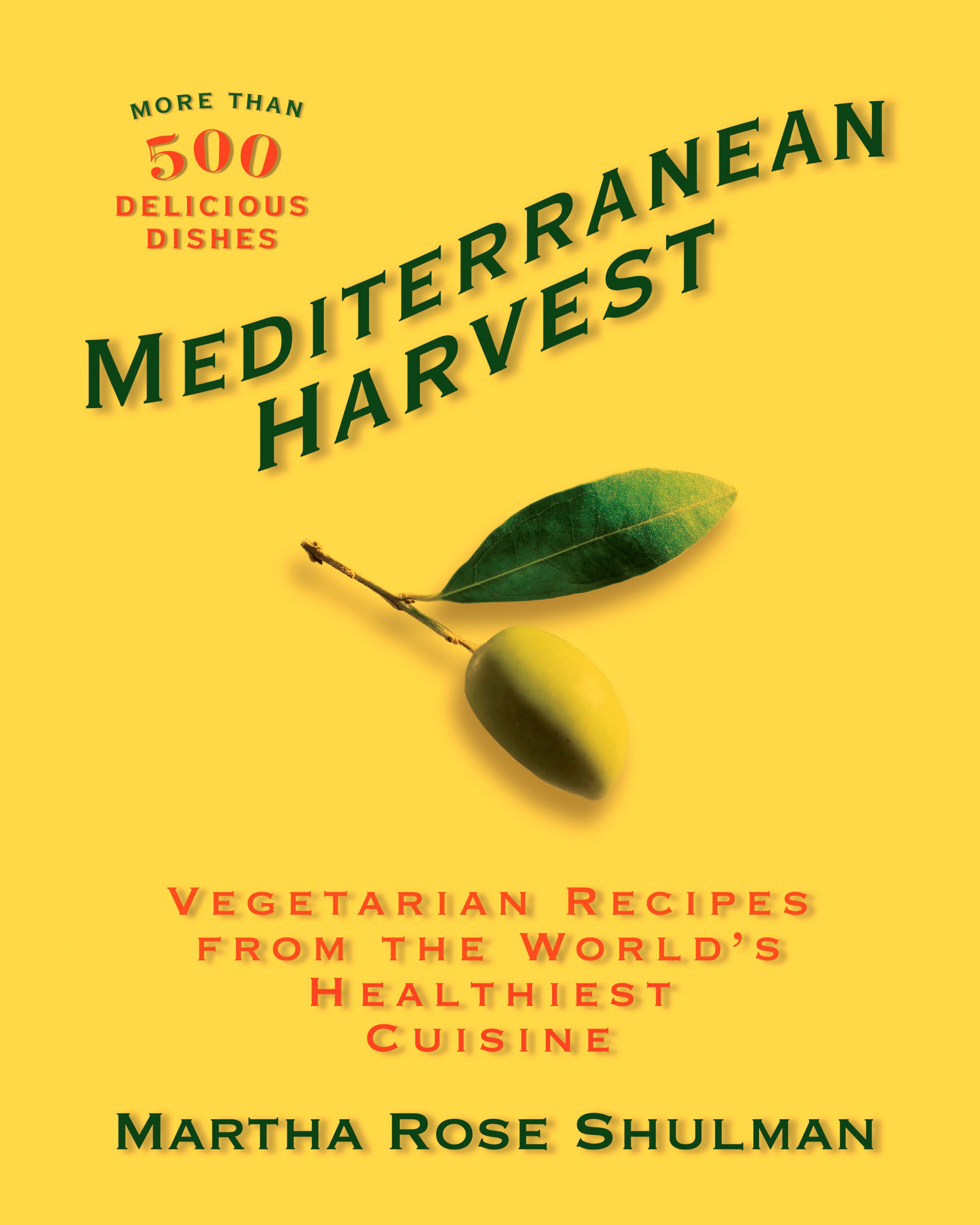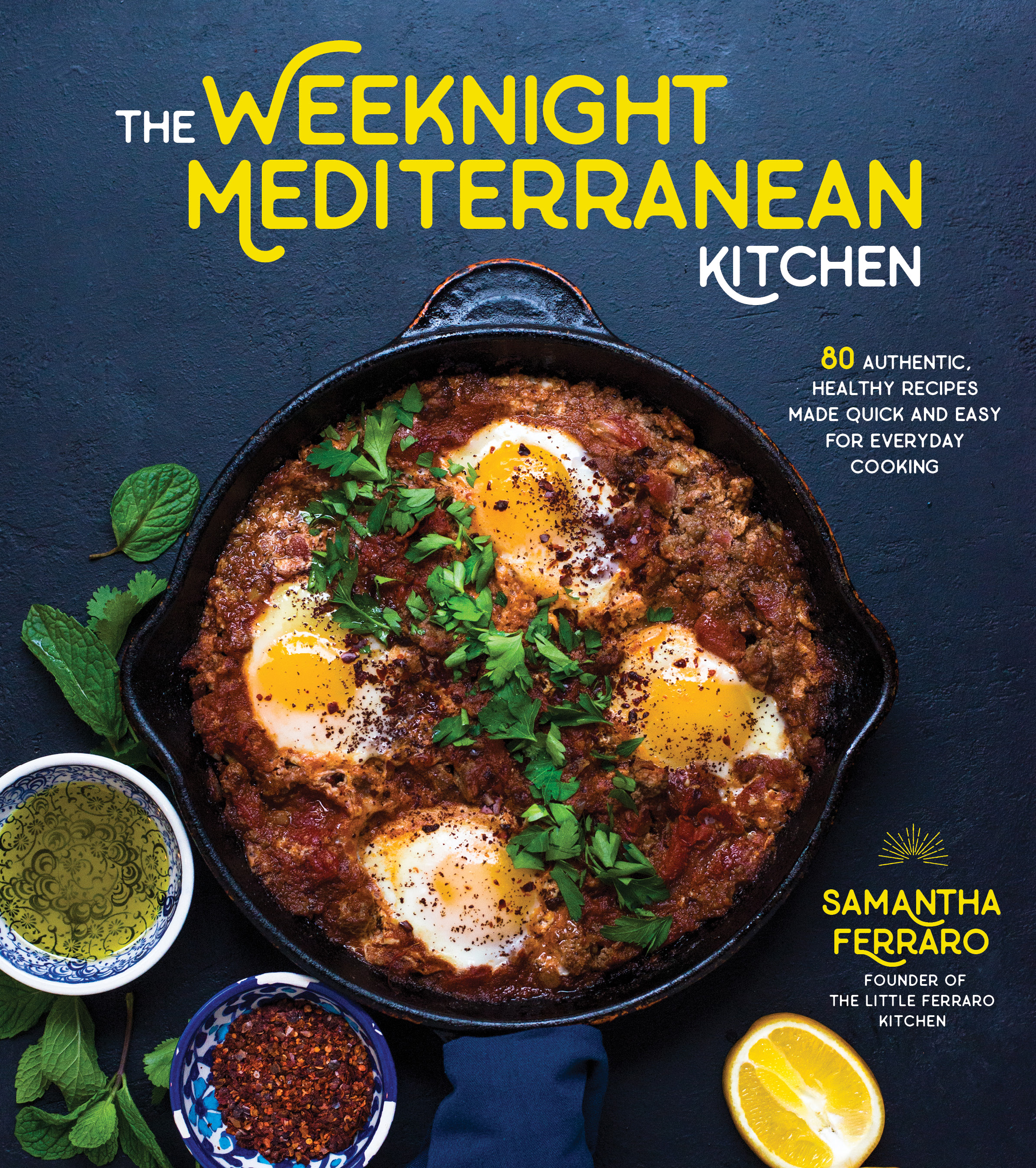For the cardiovascular benefits, a meta-analysis based on 26 studies found that the Mediterranean diet decreased risk of CVD by 20-25% (3). The Mayo Clinic notes some side benefits—specifically, associations with a reduced incidence of cancer, Parkinson’s, and Alzheimer’s disease (4). A study published in Neurology looked at MRI scans and dietary information from 674 elderly adults without dementia, and found that higher adherence to a Mediterranean diet was associated with larger brain volume, gray matter volume, and white matter volume, and higher fish intake was associated with a larger average cortical thickness (5). The difference in brain atrophy between those with low adherence to the diet and those with high adherence was the equivalent of five years of aging. Yet another study, this one published in American Academy of Ophthalmology, looked at 4,446 participants from a study based in the Netherlands and 550 adults from a study based in France (6). By pooling the data, researchers found that those with a high adherence to the diet had a 41% reduced risk for advanced age-related macular degeneration. Jery Cochern, founder and president of R&D at Pure Essence, Las Vegas, NV, notes that it's a good choice for digestive health: "The Mediterranean diet is characterized by minimizing meats and focusing on fruits and vegetables, food choices that reduce gut inflammation and promote a healthy digestive tract microbiome." He adds that "every holist since Hippocrates has seen the digestive tract as the beginning of all health or disease," making it likely that many of Mediterranean's benefits arise from this initial perk.
For parents used to cooking separate meals for themselves and children, this diet is a lifesaver. Not only can Mediterranean foods be kid-friendly, but a study by Rosario Ferrer-Cascales et al. performed on 527 Spanish adolescents found that adherence to Mediterranean led to higher levels of subjective happiness and health-related quality of life (7). Those parents with very young children, who might be a little pickier, can turn to cookbooks like Gourmet Mediterranean Cuisine for Children by Aslihan Koruyan Sabanci for suggestions for both children’s meals and adult’s meals that will appeal to children. Sabanci’s book has meal suggestions for children of all ages, starting from the moment parents begin to wean them off milk.
Putting It On the Dinner Table The Mediterranean diet doesn’t have strict do- and don’t-eat lists; It’s based on the eating habits of those living in Spain, Southern Italy, Turkey, and Greece—entirely different countries with access to different foods. There are, however, some basics: fresh vegetables, fruits, nuts, legumes, seafood, whole grains, and olive oil are all staples of the diet. Red meat should be consumed rarely and sparingly; poultry can be eaten a little more often. And, of course, a glass of wine with dinner is encouraged.
Cochern points out that, in terms of general macronutrient intake, it's around the same as a Western Diet: "The typical breakdown is 50%-60% of calories from carbs, 15% to 20% from proteins and 35%-45% from fats." These basics can serve as a loose guideline for those looking for more structure, and those who are switching to this diet from one with a very different breakdown (like Keto) may want to consider enzymes, like those from Pure Essence, until their bodies begin making the necessary enzymes again.
Fortunately, all of these foods can be found organic and functional. But note that olive oil is no stranger to mislabeling—Forbes reported that a large percentage of olive oil is, at best, not extra virgin (8). Buy from a small farm or co-op, or a reputable company. Carlson Nutritional Supplements sells extra virgin olive oil from Crete, Greece—and it comes blended with sustainably-sourced fish oil, for that extra heart health hit. Carlson sells it in packets, too, so those who hate soggy salads can package their salad for work and add olive oil right before eating—and, hopefully, right after the vinegar, so that their salad can absorb the vinegar before the oil makes it waterproof.
Wine can be organic, too—Frey Vineyards has been selling organic, gluten-free wine without added sulfites since 1980, and was the first winery in the U.S. to be certified Biodynamic. Besides just being free of toxic chemicals, Frey’s website cites a study from UC Davis, California, showing that organic fruits and berries have up to 58% higher antioxidants than non-organic (9).
This might all expose a problem for busy customers: There’s not much to eat on a Mediterranean diet that’s quick-and-easy. Jumpstart them with some slow cooker recipes: Maybe ease them in with garlic parmesan chicken and potatoes, found on DamnDelicious.net, with a prep time of 10 minutes and a cook time of eight hours—the ideal workday dinner (10). Similarly, the Lemon Basil Ratatouille found on Wholesomelicious.com has 10 minutes of prep time and 5 minutes of cook time, along with a variety of vegetables (11). That particular recipe has a helpful note at the end: When working with eggplant, slice it, sprinkle on some sea salt, and let it sit. Soak up whatever liquid comes out, and the eggplant won’t come out with a bitter taste.
All else fails—go back to that Gourmet Mediterranean Cuisine for Children cookbook by Sabanci. It says children, but adults can appreciate Zucchini Au Gratin or Pearly Pasta with Buffalo Mozzarella and Fresh Basil just as much as any kid, and with 154 recipes, there’s plenty that’ll work for a weeknight. And while the emphasis with Mediterranean is on fresh foods, there are a few convenience foods that can be found pre-packaged—and organic—like hummus. Try Tribe: organic, non-GMO, with no artificial preservatives, and in a variety of flavors. For other pre-packaged Mediterranean foods, look into Cedar’s. Tzatziki, salads, pita chips, dips, and salsa—Non-GMO Project Verified, USDA Organic, and certified gluten-free. Cedar’s has snack packs, too, perfect for school or work lunches.
Customizing with Supplements In spite of all the freedom allowed on Mediterranean, there are places it can fall short. Those on this diet might want to take stock of what they’re cutting out of it, and consider some of the following supplements:
Resveratrol. One major perk is that wine is worked into and encouraged in Mediterranean, but there are plenty of people who can’t or don’t drink. If your customer isn’t looking to make wine part of their lifestyle, they might want to start taking a resveratrol supplement. It’s a polyphenol: found in red grapes, peanuts, and berries, it’s thought to act like an antioxidant (12). It can also help prevent insulin resistance (12).
Vitamin B12. The dietary source for this vitamin comes from animals, and while it can be found in feta cheese, sardines, and eggs, most people get their dietary intake from red meat like lamb or beef. If your customers decrease or nix their red meat intake, this is an important supplement to consider. It’s used in the production of energy, and it benefits mood, memory, digestion, and hormonal balance, among others, making it invaluable (13).
Vitamin D. The Mediterranean is a sunny area. Depending on where you and your customers are located—or depending on whether or not your customers get plenty of time outdoors—it’s worth it to invest in this supplement, which is necessary for the absorption of calcium and phosphorous and helps maintain proper bone structure (14).
Omega-3. This one might come as a surprise to your customers—omegas are half the point of eating seafood. But if the dieter in question is starting this diet expressly for the sake of enjoying its cardioprotective benefits, they might want to know that, according to one study, achieving a cardioprotective level of omega-3 in the blood required both three fish meals per week and supplement usage (15). This is also a worthwhile supplement for those who just don’t like fatty fish.
Calcium. One study found that Westerners on a Mediterranean diet didn’t get the amount of calcium called for by federal guidelines (16). This doesn’t necessarily need to be in supplement form—that same study found that adding more cheese and dairy into the diet helped people meet their calcium requirements without taking away from any of the benefits Mediterranean has to offer. That said, your lactose intolerant customers might not have that option, and might appreciate the heads up.
Enzymes. Cochern points out that "no diet is any better than how well its digested." Mediterranean, of course, provides a variety of fruits and vegetables, as well as a healthy amount and ratio of omega-3 and -6 fatty acids. "But, again," Cochern says, "These things must be digested. To whatever degree they're not, the nutrients they provide are wasted. So those with frequent digestive complaints should ensure efficient digestion by using exogenous enzymes."
The Mediterranean diet is, in fact, all it’s cracked up to be—and then some. But remind your customers that it’s a lifestyle, not a diet. Encourage exercise; If you happen to host yoga classes or something similar, this is a great time to pitch them, because exercise is integral to the Mediterranean lifestyle. If you don’t, or if your customers are wary about the time and commitment exercise takes, refer them to a recent blog post on NaomiWhittel.com by Naomi Whittel, author of Glow15, on the benefits of a 15-minute post-meal walk (17)—but whatever works for them, they really should do it; the diet includes the assumption of exercise. This lifestyle is so customizable that, if your customers don’t keep an eye on it, they could customize benefits right out of it. WF
Good Health Reads: Top-selling Mediterranean books
 The Complete Mediterranean Cookbook: 500 Vibrant, Kitchen-Tested Recipes for Living and Eating Well Every Day (America’s Test Kitchen, 2016) by America’s Test Kitchen
The Complete Mediterranean Cookbook: 500 Vibrant, Kitchen-Tested Recipes for Living and Eating Well Every Day (America’s Test Kitchen, 2016) by America’s Test KitchenThe #1 Bestseller in the Mediterranean Cooking, Food & Wine category is a true Mediterranean cookbook: It embraces every country in the region, from Morocco and Egypt to Turkey and Lebanon, giving dieters the widest possible variety of flavors to work into their lifestyle.
 Mediterranean Harvest: Vegetarian Recipes from the World’s Healthiest Cuisine (Rodale Books, 2010) by Martha Rose Shulman
Mediterranean Harvest: Vegetarian Recipes from the World’s Healthiest Cuisine (Rodale Books, 2010) by Martha Rose ShulmanCovering the whole Mediterranean region, this cookbook is for the bored chef: According to one reviewer, there are 11 different preparations for asparagus. Other reviewers called it a “complete look at Mediterranean cuisine,” including notes on Mediterranean history and culture.
 The Weeknight Mediterranean Kitchen: 80 Authentic, Healthy Recipes Made Quick and Easy for Everyday Cooking (Page Street Publishing, 2018) by Samantha Ferraro
The Weeknight Mediterranean Kitchen: 80 Authentic, Healthy Recipes Made Quick and Easy for Everyday Cooking (Page Street Publishing, 2018) by Samantha Ferraro
- U.S. News, “Mediterranean Diet,” USNews.com. Accessed 4/29/19. https://health.usnews.com/best-diet/mediterranean-diet
- Science Blog, “Mediterranean Diet Works by Adding Up Small Improvements,” ScienceBlog.com. Posted 2/18/19. Accessed 4/29/19. https://scienceblog.com/506170/mediterranean-diet-works-by-adding-up-small-improvements/
- Norman Temple et al., “Mediterranean diet and cardiovascular disease: a systemic review and meta-analysis of observational studies,” European Journal of Nutrition, 58(1), 173-191(2019). https://link.springer.com/article/10.1007%2Fs00394-017-1582-0
- Mayo Clinic Staff, “Mediterranean diet: A heart-healthy eating plan,” MayoClinic.org. Posted 1/26/19. Accessed 4/29/19. https://www.mayoclinic.org/healthy-lifestyle/nutrition-and-healthy-eating/in-depth/mediterranean-diet/art-20047801
- Yian Gu et al., “Mediterranean diet and brain structure in a multiethnic elderly cohort,” Journal of the American Academy of Neurology, 85(20), 1744-1751(2015). https://www.ncbi.nlm.nih.gov/pmc/articles/PMC4653103/
- Bénédicte M.J. Merle et al., “Mediterranean Diet and Incidence of Advanced Age-Related Macular Degeneration,” Ophthalmology, 126(3), 381-390(2019). https://www.aaojournal.org/article/S0161-6420(18)30721-8/fulltext
- Rosario Ferrer-Cascales et al., “Higher Adherence to the Mediterranean Diet is Related to More Subjective Happiness in Adolescents: The Role of Health-Related Quality of Life,” Nutrients, 11(3), 698-710(2019). https://www.mdpi.com/2072-6643/11/3/698
- Cecilia Rodriguez, “The Olive Oil Scam: If 80% is Fake, Why Do You Keep Buying It?” Forbes. Posted 2/10/16. Accessed 4/29/19. https://www.forbes.com/sites/ceciliarodriguez/2016/02/10/the-olive-oil-scam-if-80-is-fake-why-do-you-keep-buying-it/#55441f71639d
- “Organic Wine: Frey Organic Wine Making,” FreyWine.com. Accessed 4/29/19. http://www.freywine.com/Our-Winemaking-Philosophy/Organic-Wine
- Chungah Rhee, “Slow Cooker Garlic Parmesan Chicken and Potatoes,” DamnDelicious.net. Posted 5/27/16. Accessed 4/29/19. https://damndelicious.net/2016/05/27/slow-cooker-garlic-parmesan-chicken-potatoes/
- Amy, “Slow Cooker or Instant Pot Lemon Basil Ratatouille,” Wholesomelicious.com. Posted 7/3/16. Accessed 4/29/19. http://www.wholesomelicious.com/slow-cooker-lemon-basil-ratatouille/
- “Resveratrol Supplements,” WebMD.com. Posted 11/18. Accessed 4/29/19. https://www.webmd.com/heart-disease/resveratrol-supplements
- Christine Ruggeri, “Vitamin B12 Benefits That You’re Probably Missing,” DrAxe.com. Posted 9/28/18. Accessed 4/29/19. https://draxe.com/vitamin-b12-benefits/
- “Vitamin D,” WebMD.com. Accessed 4/29/19. https://www.webmd.com/vitamins/ai/ingredientmono-929/vitamin-d
- WholeFoods Magazine Staff, “Study: Fish Consumption and Supplementation Necessary for Healthy Omega-3 Levels,” WholeFoodsMagazine.com. Posted 1/25/19. Accessed 4/29/19. https://wholefoodsmagazine.com/supplements/news-supplements/study-fish-consumption-and-supplementation-necessary-for-healthy-omega-3-levels/
- Gigen Mammoser, “Having difficulty Following a Mediterranean Diet? Try a MedDairy Diet,” HealthLine.com. Posted 12/28/18. Accessed 4/29/19. https://www.healthline.com/health-news/the-new-improved-mediterranean-diet
- Naomi Whittel, “How Walking Benefits Metabolism and Digestion,” NaomiWhittel.com. Posted 4/23/19. Accessed 4/29/19. https://www.naomiwhittel.com/walking-to-boost-metabolism/









